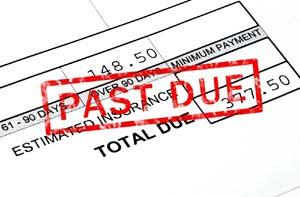Business Debt Collection: Things to Remember and Steps to Consider
Running a business seems fairly straightforward – and in most cases it is. You provide a service or product and the customer or client who receives that service or product provides compensation. It’s how business has operated for centuries and how it will for centuries to come.
But, sometimes there are hiccups in the system; sometimes the process doesn’t go as planned. Sometimes a customer doesn’t pay or refuses to pay. When this situation arises, what do you do?
Gather Records and Evidence
When there’s a written agreement in place, the process of collecting a debt is more straightforward: there was an agreement, one party failed to follow through on their obligations, now something must be done. However, not all agreements need to be in writing to be enforceable.
If you have a debt that is owed to your business, collect all information you have related to the transaction – phone call records, emails, meeting dates and so on. The more data you have to back up your business, the more likely the collections process is to go in your favor.
Remember that Business is Business
It’s easy to hear personal stories about hardship and to want to help out. However, business and personal issues must be kept separately. If your business is owed money from a legitimate transaction, it’s reasonable to follow through on collecting that money.
Be straightforward in your conversations and let the customer or client know that you will proceed at all necessary lengths to collect what is owed.
Start the Process in Writing
To begin the collections process, sending a certified letter is a reasonable – and affordable – first step.
Start your letter by discussing the details of your agreement and/or transaction. Lay out when the agreement was made, what the terms of the agreement were, when payments were to be made and where you stand currently.
Close by clearly stating when the payment must be made, and what will happen if that fails to happen. Remove emotion from the process and stick to the facts. Save a copy of your letter for your records. In some cases, this may be action enough to warrant repayment. If it is not, it’s time to move to further action.
Obtain Legal Assistance
If your efforts have failed, the best route is to contact a debt collection attorney, like Michael Hynum of Hynum Law in Harrisburg, PA. Having your attorney send a letter may be more effective than the letter you sent on your own; it demonstrates that you’re serious and that you will take the steps necessary to collect.
Move to Additional Legal Action
If your attorney’s letter is not enough to warrant action, small claims court or other legal action may be your best option. By taking the customer or client who owes you money to court, you can ensure your debt is collected and that your business can move forward. As you prepare for court, be sure your records are in order and that you can document as much of the transaction as possible. If the ruling is in your favor, you may not be responsible for court fees and expenses.
Debt collection can be a frustrating, long process. It requires patience and, often times, the support of a qualified, experienced debt collection attorney. At Hynum Law, we make our clients our priority. If you have a debt that is owed to you or your business, contact us today to start the process. We look forward to working with you.

